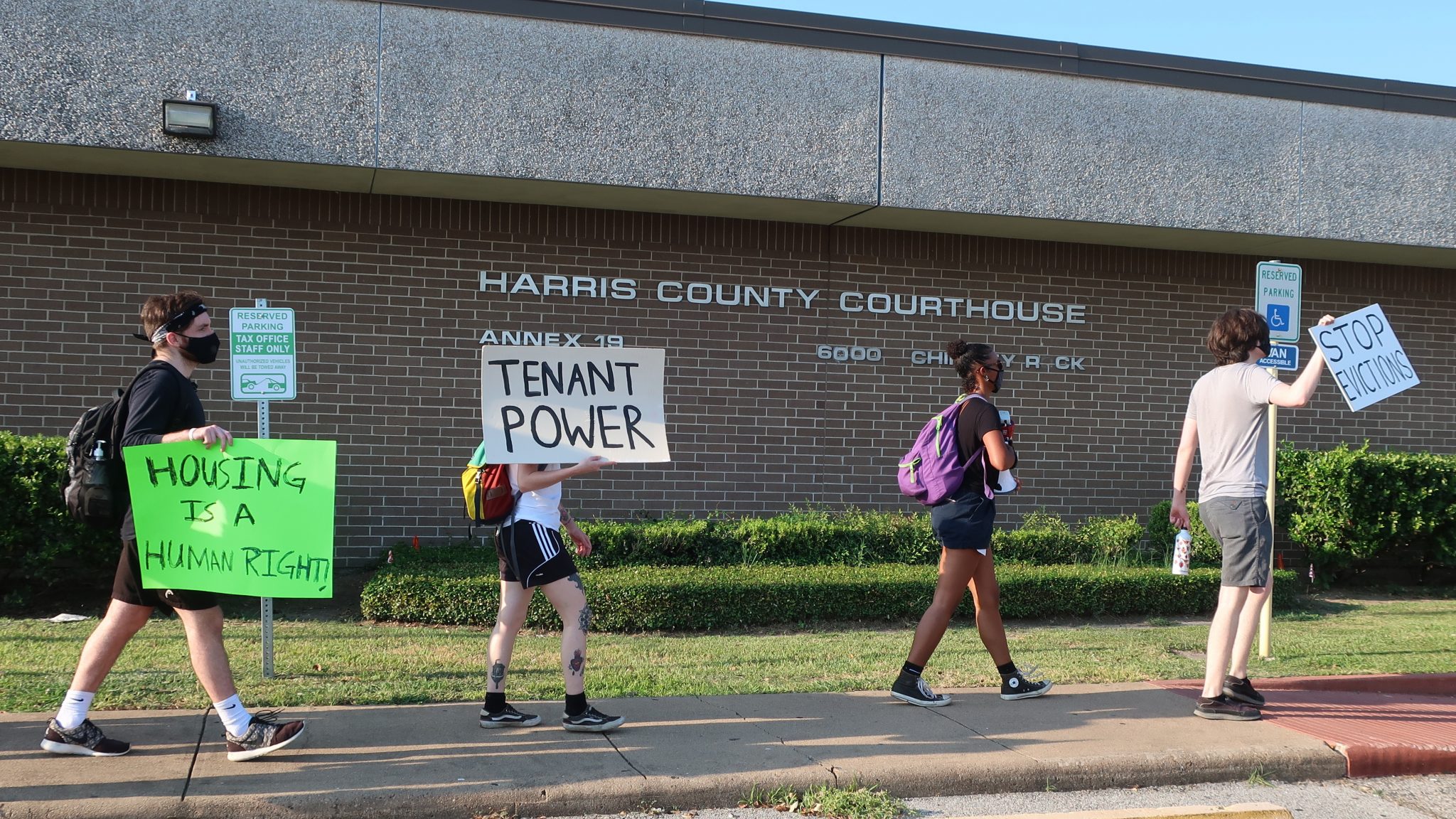From Houston Public Media:
This is part two in a two-part series on how and why people are being evicted in Houston, despite a federal moratorium halting the practice. Click here for part one, about how some landlords are forcing their tenants to informally “self-evict.”
Shemeka Smith is used to helping others. She’s a nursing student in Clear Lake and planned to assist elderly people and veterans with social services this year.
But that job offer evaporated with the pandemic, so now she’s in the uncomfortable position of needing help herself: She got temporary rent relief through the city and county’s public program administered by nonprofit Baker Ripley, but she’s emptied her savings while applying for jobs.
Running out of luck, she went online and found out about the federal eviction moratorium. She read the rules laid out by the Centers for Disease Control and Prevention, printed out the form, and gave it to the apartment manager.
The manager threw the form in the trash, telling her that they aren’t participating in the program. Smith pushed back, informing the manager that the CDC order is a federal rule, not a voluntary program.
“A couple hours later, she put an eviction notice on my door,” Smith said.
Smith’s is just one example of the moratorium’s chaotic and uneven results in the Houston area. According to data from consulting firm January Advisors, less than 3% of renters in Harris County eviction courts have legal representation, so most of them are on their own. And the outcome of those cases can depend on which judge you step in front of.
Take, for example, justices of the peace Holly Williamson and Lincoln Goodwin, both Republicans.
In a Houston Public Media review this week, Judge Williamson — livestreaming her court from Pasadena — stopped most eviction cases on her docket, even taking the time to find out if renters qualified for the CDC moratorium if they didn’t know their rights. In one instance, when a renter believed he didn’t qualify for protection because his income was too high, Williamson corrected him and abated his case.
By contrast, in Judge Goodwin’s packed courtroom in the Spring area, 63 eviction cases were heard at the same time. Most renters didn’t show up, so they got evicted. Goodwin told those who did show up that the outcome likely wouldn’t be in their favor if they owed rent, telling them they were free to go before their hearing if they felt the move-out date was acceptable.
Most cases ended in eviction without the CDC moratorium stopping them.
So many Houston-area renters are still being evicted that At-Large City Council member Letitia Plummer has gone door-to-door at apartment complexes across the city to distribute the legal declaration form renters are required to give their landlords.
“We’re just letting people know that that’s the declaration, that they do have rights,” Plummer said. “They don’t have to move right now.”
When renters don’t get the message in time, some are still desperately trying to avoid eviction even after their court date.
That’s what Jonna Treble saw last week. An attorney with Lone Star Legal Aid and the Eviction Right to Counsel program, Treble got an emergency call early one morning. A woman said she was being evicted — and the constable’s deputy was headed over to remove her.
“He was literally on the way,” Treble said. “She was standing in her front yard melting down because she and her daughter had dragged all of her belongings out into the yard and were trying to load it into a truck. She had nowhere to take the truck to, but she just wanted to try and keep as much of her stuff as she could.”
The caller met the CDC qualifications, so Treble raced to get the CDC declaration form to the constable, the court and the landlord. She said her hands were shaking.
“When I called her back, I think there was a lot of relief and some happy tears,” Treble said.
While the CDC moratorium doesn’t cancel any rent — payments will accrue while the order is in effect — now she has three months to catch her breath.
As for Shemeka Smith, the Clear Lake nursing student facing eviction, she hasn’t given up. Because the moratorium doesn’t automatically stop evictions, it was up to her to know her rights.
So she gave her apartment manager the form again — this time in an email — and they agreed not to file a case.
“I’m trying to stay positive about the situation and stay focused. That’s all I can do,” Smith said. “My goal is to pay them — that’s my entire goal, to pay my rent and go forward.”















